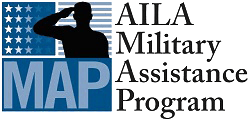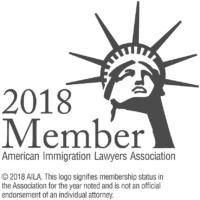Family Preference Visas in Atlanta
In addition to spouses and unmarried children under 21, United States citizens can act as sponsors for family members who wish to immigrate to the U.S. However, although spouses and young children of citizens can apply for immediate visas, other people eligible for relative-based immigration must seek family preference visas instead.
Unfortunately, a limited supply of family preference visas in Atlanta are issued annually, so ensuring your petition is comprehensive and error-free is vital. Thankfully, assistance from a knowledgeable family immigration attorney could go a long way towards simplifying the application process and helping you get the results you deserve.
Do Some Family Preference Applicants Take Priority Over Others?
According to current U.S. Citizenship & Immigration Services policies, there are five categories for family preference visas in Atlanta, which vary according to how a prospective immigrant is related to their sponsor. First preference and priority—F1—goes to unmarried children ages 21 and up sponsored by their U.S. citizen parent.
Next, there are two subcategories that involve sponsorship by non-citizens who are permanent U.S. residents. For example, F2A family preference visas are reserved for spouses or children under 21 years old and unmarried, while F2B visas are meant for unmarried children over 21. Married children and other family members of lawful permanent residents are not eligible for family-based immigration.
On the other hand, married children of U.S. citizens can apply for and receive family-based immigration visas through the third preference category—F3. Finally, the fourth preference—F4—is reserved for siblings of citizens. However, only residents that are at least 21 years old can sponsor siblings for this type of visa. The sponsorship age limit for all other family preference visa categories is 18.
What to Submit with a Family Preference Visa Petition
The first step in the family visa application process is determining whether an immigrant visa is available for a particular family member. Confirming availability can only be done by the sponsor, who must fill out, submit, and receive approval from the USCIS on Form I-130. Once approved, the prospective visa recipient—or “principal applicant”—must fill out and file their own Form I-485 to continue the process.
Several additional documents and forms of identification may need to be submitted with Form I-485 to affirm the applicant is eligible for family-based immigration. For example, a prospective immigrant submitting Form I-485 may also need to include copies of their birth certificate, government-issued ID, passport, Form I-797 indicating approval of their Form I-130, or Form I-94—which they received upon arrival at a port of entry. A seasoned attorney in Atlanta could provide irreplaceable help with collecting documentation and developing an organized application.
Seek Help from an Atlanta Attorney with Obtaining a Family Preference Visa
Although current citizens and LPR status holders in the U.S. can sponsor family members for immigration into the United States, the specific type of visa that family members may be eligible for varies based on their relationship. Therefore, understanding what kind of visa you should seek and what would be required during the process could minimize stress and maximize your chances of success.
A seasoned immigration lawyer could answer any questions you have about family preference visas in Atlanta during a private consultation. Schedule a meeting by calling today.












